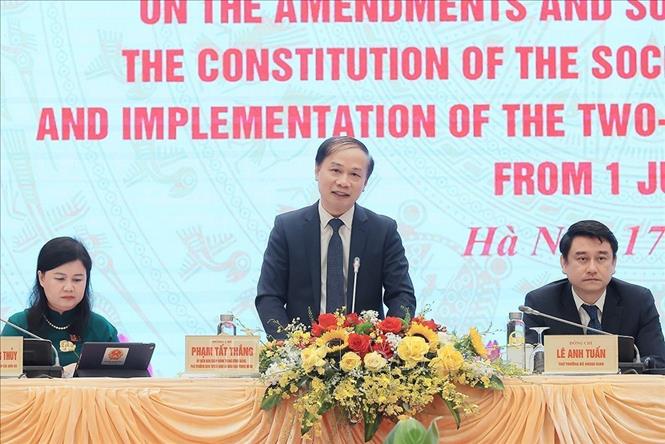
Comrade Pham Tat Thang, member of the Party Central Committee, Deputy Head of the Central Propaganda and Education Commission for Mass Mobilization, chaired the press conference. Photo: An Dang/VNA
The press conference was chaired by: Deputy Head of the Central Propaganda and Education Commission Pham Tat Thang; Deputy Chairman of the National Assembly's Committee on Law and Justice Nguyen Phuong Thuy; Deputy Minister of Home Affairs Truong Hai Long; Deputy Minister of Foreign Affairs Le Anh Tuan; Deputy Minister of Finance Ho Sy Hung.
Many domestic and international reporters attended the press conference.
Historical importance and long-term vision
Opening the press conference, Mr. Pham Tat Thang, Deputy Head of the Central Propaganda and Mass Mobilization Commission, stated: The 9th Session of the 15th National Assembly , on June 16, 2025, passed with a very high number of votes the Resolution amending and supplementing a number of articles of the Constitution of the Socialist Republic of Vietnam and the Law on Organization of Local Government (amended) "is a major event of historical significance for Vietnam, creating a solid legal foundation for the organization and operation of local governments according to the 2-level local government organization model, organized for the first time in Vietnam, to serve the implementation of major policies of the Party and State of Vietnam on national development in all fields, ensuring national defense, security and international integration".
According to Mr. Pham Tat Thang, the major goal of amending and supplementing the Constitution and reorganizing the local government model this time is: to build a government that is close to the people, serves the people better, and at the same time opens up a new situation in national development with a long-term vision, at least for the next 100 years.
Ms. Nguyen Phuong Thuy, Vice Chairwoman of the National Assembly's Committee on Law and Justice, said that since the country's founding, Vietnam has had five Constitutions. Of which, the 2013 Constitution is the Constitution of the period of comprehensive and synchronous economic and political renovation, meeting the requirements of national construction and defense and international integration.
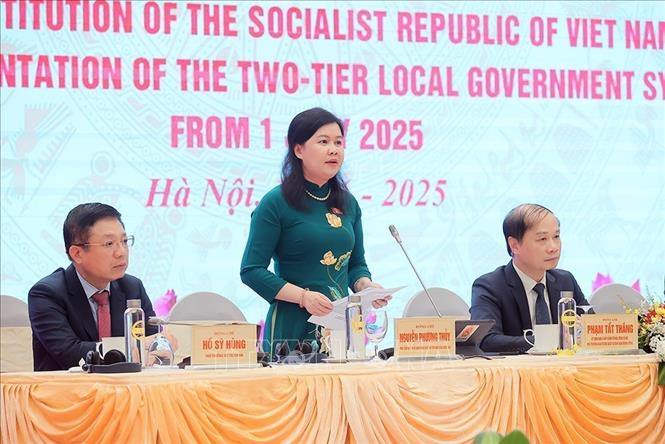
Deputy Chairwoman of the National Assembly's Committee on Law and Justice Nguyen Phuong Thuy answers reporters' questions. Photo: An Dang/VNA
The Vice Chairman of the Committee on Law and Justice emphasized that in the context of Vietnam entering an era of comprehensive innovation and sustainable development of the nation, under the leadership of the Communist Party of Vietnam, there is an urgent need to amend and supplement a number of articles of the 2013 Constitution to create a constitutional basis for the implementation of the task of streamlining the organization of the political system and perfecting the 2-level local government model in the direction of being closer to the people, serving the people better, and at the same time opening up a new development future for the country.
From May 6 to June 5, 2025, there were more than 280 million comments from the people, agencies and organizations at both central and local levels on all contents and provisions of the draft Resolution with a very high approval rate, averaging 99.75%.
Regarding the content of the Resolution, Vice Chairman of the Committee on Law and Justice Nguyen Phuong Thuy said that Resolution No. 203/2025/QH 15 amending and supplementing a number of articles of the Constitution of the Socialist Republic of Vietnam, which has just been passed by the National Assembly, consists of 2 articles, of which Article 1 amends and supplements 5 out of a total of 120 articles of the current Constitution, including Article 9; Article 10; Clause 1, Article 84; Article 110 and Article 111. Article 2 of the Resolution stipulates the effective date and transitional provisions.
Specifically, amend and supplement the provisions on the Vietnam Fatherland Front and socio-political organizations in Article 9; on Vietnam trade unions in Article 10; provisions on the right to submit draft laws and draft ordinances of socio-political organizations in Clause 1, Article 84; administrative organizations and units in Article 110; provisions on local governments in Article 111 of the Constitution.
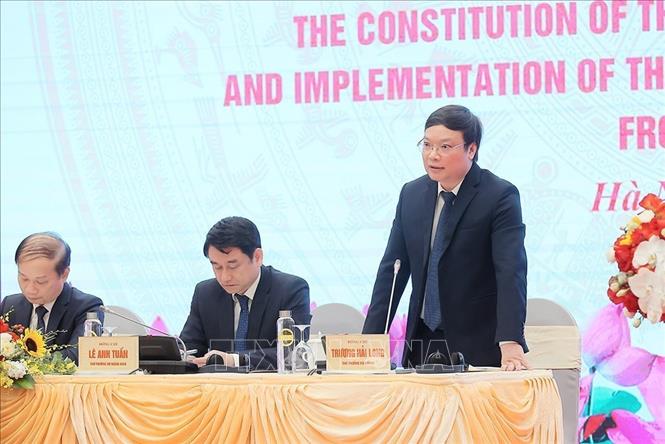
Deputy Minister of Home Affairs Truong Hai Long answers questions from domestic and foreign press agencies. Photo: An Dang/VNA
The Vice Chairman of the Committee on Law and Justice also said that the National Assembly is currently considering amending, supplementing and passing at this 9th Session many other laws and resolutions to ensure synchronous implementation with the amended contents of the Constitution, such as the Law on Organization of Local Government (amended); Law on Cadres and Civil Servants (amended); Law on amending and supplementing a number of articles of the Law on promulgation of legal documents...
Expectations in implementing the two-level local government model
Presenting details on the implementation of the two-level local government organization model, which will start from July 1, 2025, Deputy Minister of Home Affairs Truong Hai Long said that, based on the Resolution of the National Assembly on amending and supplementing a number of articles of the Constitution, on June 16, 2025, the National Assembly passed the Law on Organization of Local Government (amended) to serve as a basis for the Government as well as relevant ministries, branches and central agencies to issue legal documents, guidance documents and directives to implement the organization of the two-level local government model in Vietnam from July 1, 2025.
The Law consists of 7 chapters and 54 articles. Accordingly, after the reorganization, Vietnam has 34 provincial-level administrative units, including 6 centrally-run cities and 28 provinces; there are 3,321 commune-level administrative units, including 2,621 communes, 687 wards and 13 special zones. The Law has completed the principles of decentralization and decentralization between the Central Government and local governments and between local government levels in a scientific, synchronous and unified manner; clearly delineating the authority between the People's Committee and the individual Chairman of the People's Committee. Thereby, creating conditions for building a flexible and effective management mechanism, encouraging the initiative and creativity of heads of state administrative agencies at the local level.
Deputy Minister of Home Affairs Truong Hai Long also noted that the Law specifically provides for the empowerment of the Chairman of the Provincial People's Committee, if necessary, to directly direct the resolution and management of issues under the authority of subordinate agencies, with the goal of not allowing the resolution of work and administrative procedures for people and businesses to be delayed or become congested or ineffective.
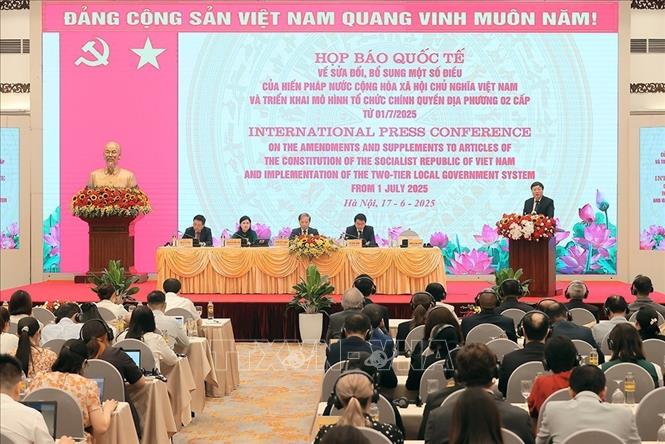
Scene of the international press conference on amending and supplementing a number of articles of the Constitution of the Socialist Republic of Vietnam. Photo: An Dang/VNA
Responding to reporters' questions about preparations for organizing the new local government model, Mr. Truong Hai Long said that Vietnam has taken many "synchronous, strict and comprehensive" steps, including: Completing the legal basis from the Constitution to sub-law documents; developing a reasonable staff arrangement plan, focusing on capacity and experience, especially at the new commune level; investing in physical facilities and digital infrastructure to ensure interconnected administrative procedures; promoting propaganda to create high consensus among the people.
Despite initial difficulties such as completing a large volume of legal documents in a short time, affecting the mindset of officials and civil servants when streamlining the apparatus, challenges in improving commune-level capacity and people's concerns about changing administrative procedures, Deputy Minister of Home Affairs Truong Hai Long affirmed that the Government has solutions, committing that "administrative procedures must not be interrupted, but must be continuous".
Impact on business environment and investment attraction
Responding to reporters' questions about the preparation for the arrangement of provincial-level administrative units, Mr. Ho Sy Hung, Deputy Minister of Finance, added that the preparation work has been carried out very carefully, with the review of up to 5,000 legal documents, the identification of 6,738 tasks at all levels and the clear division of 2,718 key tasks between the Central and local levels. In particular, 1,470 tasks will be decentralized and transferred to local authorities and 1,248 tasks will be divided between the provincial and communal levels. The Government has also issued 28 decrees on decentralization and delegation of powers.
Responding to questions from international reporters about concerns about the impact on the business environment due to the arrangement of provincial administrative units and the organization of two-level local governments, Deputy Minister Ho Sy Hung affirmed that these changes do not affect or make it difficult for the business and investment environment, but instead will create a larger space for economic and social development and simplify administrative procedures, delegating power to direct units; thereby reducing administrative procedures as the Government has set a target of reducing at least 30% of administrative procedures, helping to shorten the time and cost of complying with administrative procedures.
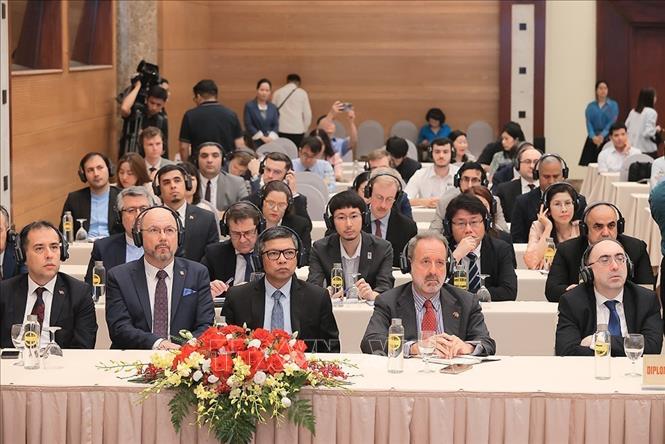
Representatives of domestic and international diplomatic agencies attended the press conference. Photo: An Dang/VNA
Regarding the policy of attracting foreign investment, Mr. Ho Sy Hung emphasized that the policy of attracting foreign investment does not depend on the issue of organizing two-level government.
“Vietnam wants to deploy a two-level local government model in sync with the process of restructuring the apparatus and changing the management mechanism to aim at the goal of transforming to a proactive, constructive state serving the people, proactively supporting and creating conditions for businesses to invest and do business in Vietnam,” Deputy Minister Ho Sy Hung affirmed.
Viet Duc (Vietnam News Agency)
Source: https://baotintuc.vn/thoi-su/hop-bao-quoc-te-ve-sua-doi-mot-so-dieu-cua-hien-phap-va-trien-khai-mo-hinh-chinh-quyen-dia-phuong-2-cap-20250617140931322.htm




![[Photo] Prime Minister Pham Minh Chinh attends the annual Vietnam Business Forum](https://vphoto.vietnam.vn/thumb/1200x675/vietnam/resource/IMAGE/2025/11/10/1762780307172_dsc-1710-jpg.webp)

![[Photo] Prime Minister Pham Minh Chinh attends the Patriotic Emulation Congress of the Ministry of Foreign Affairs for the 2025-2030 period](https://vphoto.vietnam.vn/thumb/1200x675/vietnam/resource/IMAGE/2025/11/10/1762762603245_dsc-1428-jpg.webp)

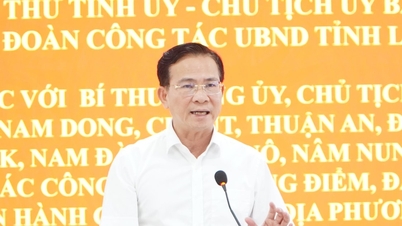

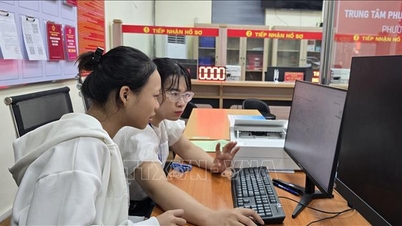
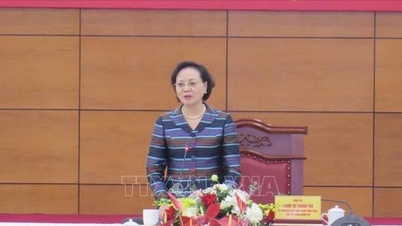

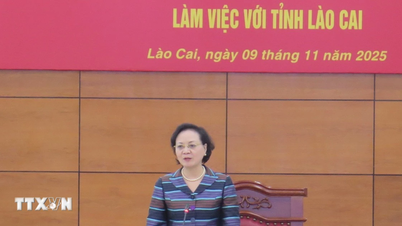

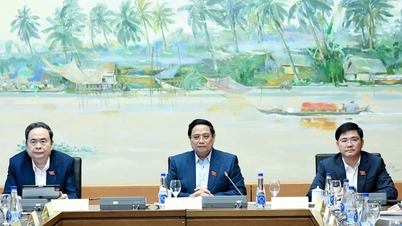
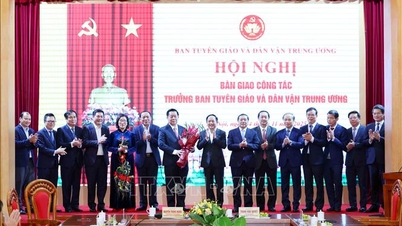
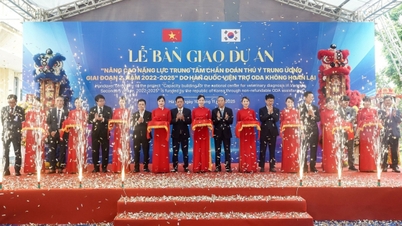

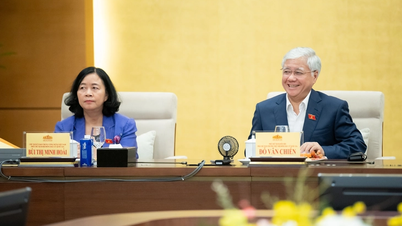














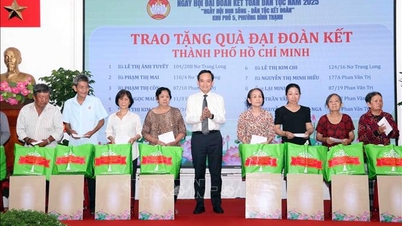


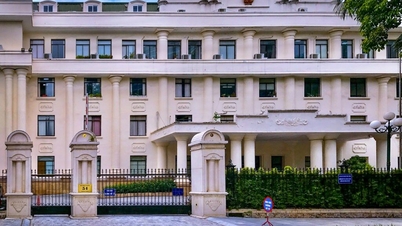






































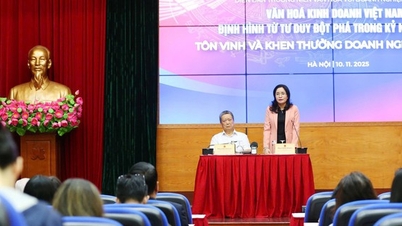










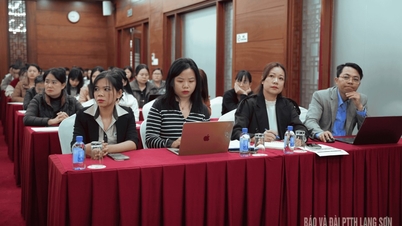


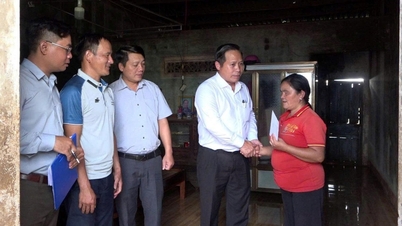

![Dong Nai OCOP transition: [Article 3] Linking tourism with OCOP product consumption](https://vphoto.vietnam.vn/thumb/402x226/vietnam/resource/IMAGE/2025/11/10/1762739199309_1324-2740-7_n-162543_981.jpeg)











Comment (0)